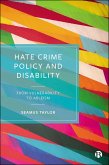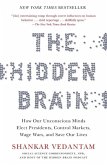Opposition to immigration has fueled a spate of populist movements in the United States and Europe. The potency of xenophobic politics is often explained in terms of factors such as economic insecurity, material competition, group identity, cultural conflicts, and social changes. These explanations have proven to be inadequate, particularly in often affluent and pluralistic contexts with relatively low levels of unemployment and poverty. How can these seemingly tolerant societies harbor intense antipathy toward migrants?
Mathew Creighton develops a new model for understanding xenophobia by shining a light on the layers of intolerance concealed beneath the surface. Drawing on rich empirical evidence from innovative survey experiments conducted in the United States, the United Kingdom, Ireland, Norway, and the Netherlands, he argues that prejudice is often present but intentionally and strategically hidden. What can change, however, are the norms that govern the social acceptability of xenophobia. When the public expression of previously impermissible beliefs is pursued by politicians and society more broadly, the stigma of open intolerance lifts to reveal the true face of this once-masked xenophobia. Creighton challenges the assumption that overt anti-immigrant sentiment is mostly attributable to economic or social crises, showing that this narrative overlooks a substantial and largely stable reservoir of intolerance.
Deeply researched, comparative, and generative, Hidden Hate provides timely and vital insight into the persistence of xenophobia.
Mathew Creighton develops a new model for understanding xenophobia by shining a light on the layers of intolerance concealed beneath the surface. Drawing on rich empirical evidence from innovative survey experiments conducted in the United States, the United Kingdom, Ireland, Norway, and the Netherlands, he argues that prejudice is often present but intentionally and strategically hidden. What can change, however, are the norms that govern the social acceptability of xenophobia. When the public expression of previously impermissible beliefs is pursued by politicians and society more broadly, the stigma of open intolerance lifts to reveal the true face of this once-masked xenophobia. Creighton challenges the assumption that overt anti-immigrant sentiment is mostly attributable to economic or social crises, showing that this narrative overlooks a substantial and largely stable reservoir of intolerance.
Deeply researched, comparative, and generative, Hidden Hate provides timely and vital insight into the persistence of xenophobia.
Dieser Download kann aus rechtlichen Gründen nur mit Rechnungsadresse in A, D ausgeliefert werden.









